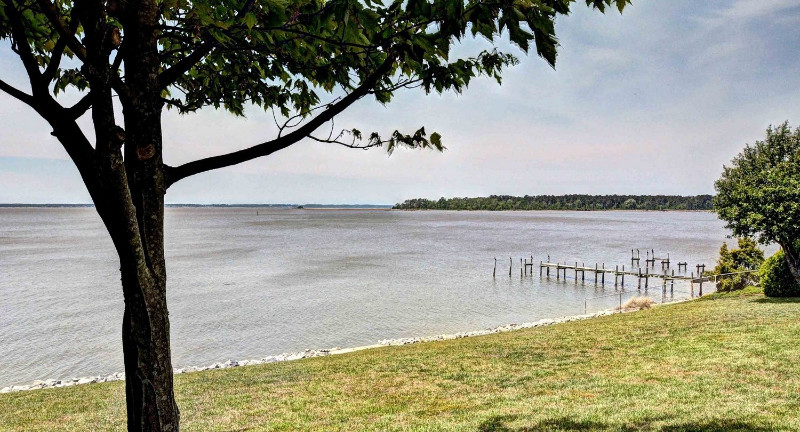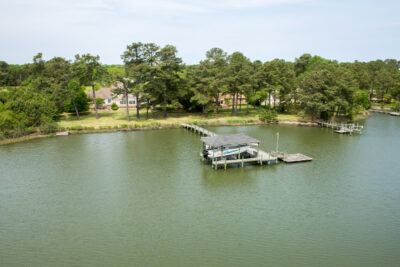
It’s hard to turn down an opportunity to own a home fronting a river, a cove, a lake, or any body of water. Who can say no to the comfort that its idyllic natural setting offers? Paradise has a price, however. The distinct appeal of waterfront properties comes with a similarly unique set of considerations to keep in mind:
- Clarify your purpose –Why are you buying a waterfront property in the first place? Are you looking for a retirement home or a vacation home? Do you want to be able to go boating at any time? Do you plan to swim often or go sport fishing? Find out if you are permitted to engage in the activities you desire on the stretch of water fronting your property.Knowing how you can use the water is also important when buying income-generating rental property. You should be able to set clear expectations and limits with your potential guests to ensure their satisfaction and safety.
- Consider the entire property, not just the house – Virginia is among the few states where private coastal/shoreline properties stretch out to the mean low tide line. This means Virginians own more property extending into the water compared to waterfront property owners in most coastal states, where intertidal land is owned and maintained by the government for public use.This also means careful consideration regarding government regulations when making significant changes on the property. For example, state permits are required for building piers and aquaculture-oriented upgrades like oyster/clam beds. Any sand-dredging activity or installation of power/phone lines also requires a proper permit.
 In addition to regulations and restrictions, pay close attention to the unique conditions of the physical surroundings. Is your property prone to flooding? How far is the house from the banks of the river? Is the shoreline receding? While a waterfront home may seem perfect at present, make sure you can live with how it may physically change over time.
In addition to regulations and restrictions, pay close attention to the unique conditions of the physical surroundings. Is your property prone to flooding? How far is the house from the banks of the river? Is the shoreline receding? While a waterfront home may seem perfect at present, make sure you can live with how it may physically change over time. - Apply for your mortgage early – If you’re keen on an estate fronting the water, apply for your mortgage early. The waterfront homes you want may require a big mortgage. Processing your pre-approval may take a longer time than a regular home loan.
- Talk to potential neighbors – Add visits and chats with current residents on your to-do list early on when shopping for a waterfront home. Insights from both long-time and newer residents can reveal a lot about the typical homeowner experiences during bad weather, dealing with local property rules and regulations, and other common issues in the area.It also pays to know whether the neighboring properties are rentals, vacation homes, or primary residences. Having rental properties nearby can mean having noisy and rowdy neighbors during peak vacation seasons, whereas primary residences can assure you that your neighbors are likely as invested as you are in maintaining a peaceful and well-preserved community.
 Inspect the home – Waterfront homes are more exposed to the elements, so they demand more care and attention in terms of weather-proofing. Expect to shell out a little more for subtle but essential upgrades like stainless steel locks (to guard against rust and corrosion) and storm shutters that add an extra layer of protection from hurricanes.
Inspect the home – Waterfront homes are more exposed to the elements, so they demand more care and attention in terms of weather-proofing. Expect to shell out a little more for subtle but essential upgrades like stainless steel locks (to guard against rust and corrosion) and storm shutters that add an extra layer of protection from hurricanes.- Get insured for flooding, windstorms, and hurricanes – When it comes to waterfront homes, you need to take extra steps to protect your investment. These locations tend to be prone to hurricanes, so consider wind and flood policies on top of the general hazard policy. Note that these individual policies may not all come through the same insurer.
 Know your responsibilities – Owning a waterfront home means having particular responsibilities regarding the maintenance of the property. The neighborhood homeowners’ association usually lays down these ground rules for the benefit of the individual residents, as well as for the entire local community. Make sure to review these conditions and restrictions so you’ll know what to expect (as well as what your neighbors expect from you) as a homeowner.
Know your responsibilities – Owning a waterfront home means having particular responsibilities regarding the maintenance of the property. The neighborhood homeowners’ association usually lays down these ground rules for the benefit of the individual residents, as well as for the entire local community. Make sure to review these conditions and restrictions so you’ll know what to expect (as well as what your neighbors expect from you) as a homeowner.- Work with the right agent – Buying any property is a difficult process; more so when you are dealing with waterfront properties. It helps to work with a professional who understands the details and nuances of such properties. The right agent will give you a steady guiding hand and a reassuring voice when requirements and deadlines pile up.
For great options on waterfront homes in Eastern and Central Virginia, call us at 804.288.2100 or send us an email at info(at)srmfre(dotted)com.


